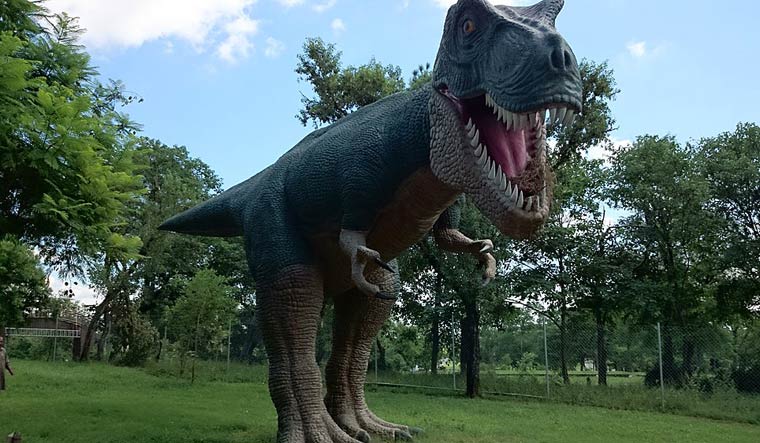Bannykus and Xiyunkus, two chinese dinosaurs were discovered by an international research team. Both the dinosaurs are Alvarezsaurs, an enigmatic group of theropod or meat-eating dinosaurs, which have many similarities with birds and show adaptations thought to be related to eating insects that live in colonies.
Professor Jonah Choiniere, co-author on the research said that Alvarezsaurs are weird animals with clawed hands and weak jaws, they appear to be the dinosaurian analog to today’s aardvarks and anteaters. “The new fossils have long arms, and so show that alvarezsaurs evolved short arms only later in their evolutionary history, in species with small body sizes. This is quite different from what happens in the classic example of tyrannosaurs, which have short arms and giant size,” said co-author Professor Roger Benson.
The discovery is important as they show transitional steps in the process of alvarezsaurs adapting to new diets. Study of the fossils was made possible by a joint South Africa/China collaborative grant through South Africa’s National Research Foundation, held by Choiniere and Xu.
The earliest members of alvarezsaurs had more typically meat-eating teeth and hands, useful for catching small prey. Only later-evolving members reduced their teeth and evolved a hand with a huge, single claw capable — perhaps —of tearing open rotting logs and anthills.

